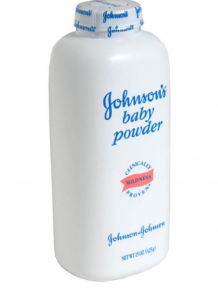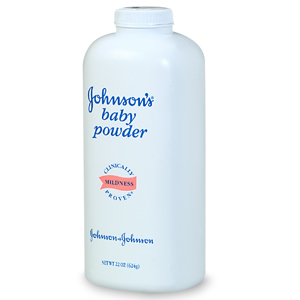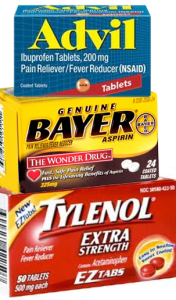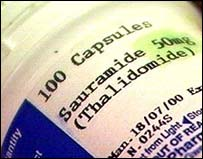 Top Class Action Lawsuits
Top Class Action Lawsuits
What are a few screws worth these days? A lawsuit—that’s what! Walmart is facing a class action lawsuit brought by customers who allege the big-box retailer is negligent in its in-store assembly of bicycles, a free service offered at all Walmart stores where bikes are sold.
Filed in Florida federal court by plaintiff Boyd Johnson, the Walmart lawsuit claims that Johnson purchased a semi-assembled Roadmaster Granite Peak bicycle from a Walmart in Pompano Beach, Florida. He had the bike assembled completely by store employees upon purchase. However, shortly after bringing the bike home and taking it for a ride the handle bars allegedly slid down due to an improperly installed bolt, causing him to lose control and fall to the pavement, injuring his face, shoulder and right side of his body.
Walmart began using its own employees to assemble bikes in 2014. Prior to that, the company had used third party vendors to do full assembly of the bikes. Walmart employees also assemble patio furniture and other products in-store, according to the complaint.
The employees that now carry out the bike assembly received “inadequate training,” according to complaint, and carry out the assembly of a bike with no assembly checklist, which are “crucial to maintaining safety standards” and readily available.
“Walmart has already been sued on the subject of improper bike assembly, yet injuries are still occurring due to the continuance of careless and sloppy in-house assembly of their bikes,” the lawsuit states. “The public should expect Walmart’s bike assemblers to be trained in bike assembly and require inspections before placing the bikes in the stream of commerce.”
According to the complaint, Wal-Mart’s bike assemblers are allegedly not properly trained or certified, which has led to the “negligent and reckless bike assembly procedures” that ultimately injured Johnson and likely other consumers, the suit states. The retailer could have provided that training and certification for less than $30 per employee.
Further, the complaint states that the Walmart bike assemblers are under such “pressure to assemble bikes as fast as they can” in order to meet customer demands that they can’t conduct inspections of the bicycles they assemble before handing them off to customers.
“They do not have time to properly inspect the bikes after assembly and fail to inspect even the most basic safety features, such as making sure that bolts are properly tightened or that brakes and tires are properly installed,” the complaint states. Yes, no, that’s not good.
The lawsuit claims negligence and breach of warranties and is seeking certification of a class of Florida and national consumers who purchased a bike from Wal-Mart that was improperly assembled. The suit also asks that Walmart be enjoined from continuing its allegedly negligent practices among other things. The case is Johnson v. Wal-Mart Stores, Inc., number 0:17-cv-60116, in the U.S. District Court for the Southern District of Florida.
Here’s hoping everyone rides off into the sunset happily ever after on this one.
Unsafe Apples? This is interesting…A proposed unfair business practices class action lawsuit has been filed against Apple alleging the tech giant doesn’t install a “lock-out-device” on iPhones to prevent California motorists from texting while driving, putting profits ahead of customer safety.
Filed in California state court the complaint represents proposed class plaintiff Julio Ceja who claims that Apple has been granted a patent by the U.S. Patent and Trademark Office in 2014 for the “lock-out-device” technology. However, Ceja claims the company has failed to modify iPhones with the device for fear of losing market share to other phone makers, to the detriment of public safety. According to the lawsuit, Apple has had the technology to prevent texting and driving since 2008.
The Apple complaint alleges unlawful, unfair and fraudulent business acts and practices by Apple. The suit seeks to block the company from selling iPhones in California that do not have the disabling lock-out device. Additionally, the suit seeks a court order that Apple update its existing iPhones with this technology.
BTW—if you were wondering how much Apple makes on sales of its iPhones—the complaint notes that the company generated $8.5 billion in profit from smartphone sales in the third quarter of 2016 alone, and an average of 586,000 iPhones per day in 2016.
Do here’s the math as it relates to texting and driving accidents:
“With 26 percent of these accidents being caused by motorists using their cellphones, and Apple’s 40 percent market share, this translates into at least 52,000 automobile accidents in California being caused by Apple’s iPhones each year,” the complaint states. Wow.
Ceja, who lives in Orange County, CA, was waiting at a stoplight when a driver distracted by her iPhone struck him from behind, causing damage to his car and injuring his back, according to the complaint.
The lawsuit describes the proposed class as “all California residents whose safety has been put at risk as a result of Apple’s failure to install ‘lock-out devices’ on their iPhones,” starting from the time Apple began selling iPhones in the state, in 2007, to present day.
The case is Julio Ceja v. Apple Inc., case number BC647057, in the Superior Court of the State of California, County of Los Angeles.
Don’t think there’s any likelihood of driving off into the sunset with this baby—with or without the device.
Top Settlements
Asleep at J&J? Heads up if you bought Johnson & Johnson (J&J) bath and bedtime products: J&J is seeking final approval of a $5 million settlement of a consumer fraud class action lawsuit pending against it for alleged false advertising of certain bedtime and bath products. If you’re eligible—you could be in for a wee pay day.
The back story: The original lawsuit was filed by a mother in Illinois in July 2015, and combined with other similar lawsuits, which claimed Johnson & Johnson had violated Illinois’ Consumer Fraud and Deceptive Business Practices Act by labeling and advertising its bedtime bath products as “clinically proven” to help babies sleep better, even though the products had not been shown to have that effect.
The class covers consumers who purchased J&J bedtime products for home use within the United States or any U.S. territories from July 1, 2010, through August 31, 2016.
The agreement received preliminary approval in August 2016. According to the terms, J&J would pay $5 million and revise the language on its packaging of its bedtime bath products.
The case is Leiner v. Johnson & Johnson Consumer Companies, Inc., case number 1:15-cv-05876, in the U.S. District Court for the District of Illinois.
Well folks –that’s a wrap for this week. See you at the bar.

 Top Class Action Lawsuits
Top Class Action Lawsuits Top Class Action Lawsuits
Top Class Action Lawsuits Top Class Action Lawsuits
Top Class Action Lawsuits


 Top Class Actions
Top Class Actions
